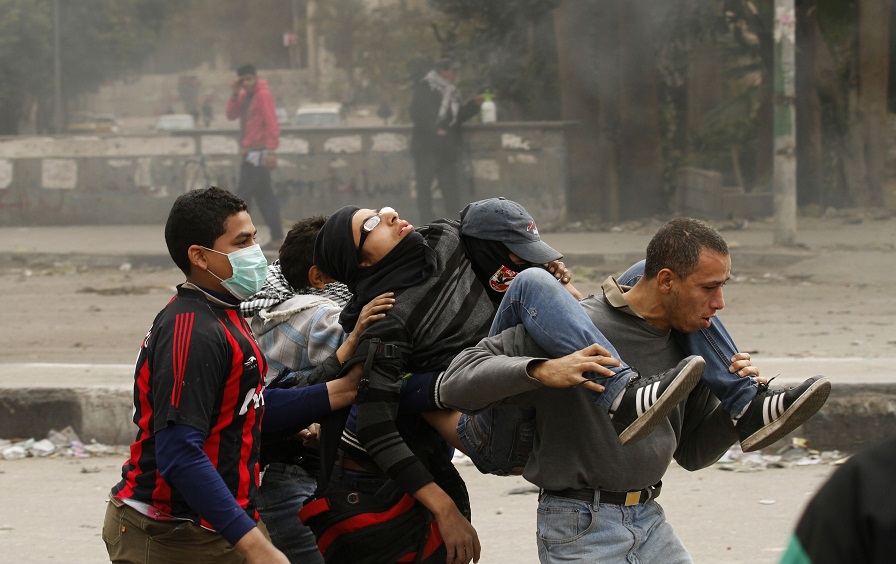CAIRO: The Supreme Council of Armed Forces (SCAF) approved a proposal by the Advisory Council Saturday to push up the Shoura Council election with the aim to finalize it by Feb. 22 instead of mid-March.
Al-Masry Al-Youm newspaper quoted Mohammad Al-Kholi, spokesman of the recently-appointed Advisory Council as saying, "Amending the date of the elections for the Upper House of Parliament is meant to shorten the transitional period by a full month."
Al-Kholi said that the complete parliament of both houses will be seated by the end of February instead of late March.
"There is a public demand to shorten the transitional period to reach stability, we support any decision that would achieve that," said Emad Abdel Ghaffour, member of the advisory council and head of the Salafi Al-Nour Party, adding that SCAF should have considered calls by political powers to cancel the Shoura Council altogether.
"There is no need for an Upper House. It was formed under late president Sadat for two reasons, to satisfy the members of Sadat’s ruling party who did not make it into the People’s Assembly (PA) and to control the national press [through the Supreme Press Council],” said Nabil Zaki, spokesman of the leftist Al-Tagammu Party.
He said that since the constitutional declaration shrinks the authorities of the Shoura Council, there is no reason to keep it.
However, not all political powers believe that cancelling the Shoura Council is the best scenario.
"Candidates have already filed their candidacy applications and started campaigning. The elections can be delayed instead," said Mohamed Bayoumi of Al-Karama Party, which is part of the Democratic Alliance spearheaded by the Muslim Brotherhood’s Freedom and Justice Party (FJP).
He added that it can be agreed that the PA would choose the Constituent Assembly to draft the constitution then elect the new president and then hold the Shoura Council elections.
"If the new constitution says that the Shoura Council should be canceled, so be it," Bayoumi said.
Meanwhile, representatives of political parties expressed their concern regarding the lack of discussion over the yet-to-be drafted constitution.
"The criteria and mechanism for drafting the constitution and those of choosing the constituent assembly are totally neglected while we are discussing peripheral matters," Zaki said, wondering how people would elect a new parliament or president without knowing its powers.
"We still did not reach an agreement on the shape of the Egyptian state and its political system," said Essam Sheha, member of the high committee of Al-Wafd Party, pointing out that this is to be decided by the constitution.
To draft a suitable constitution, Sheha said, Egyptians should have the patience and discipline to commit to the road map agreed upon from the beginning.
"The timeframe is already too short for the constitution but we can make use of the former constitutions and amend a few articles," said the legal expert.
For Ahmed Emam, of the National Front for Justice and Democracy, there are a number of alternatives for the constitution but ending military rule is the most pressing priority.
"We can even accept a new constitutional declaration in exchange for the generals to hand over power to a civilian authority," he said.
This, Emam believed, would expose SCAF’s real intentions of whether or not they want to remain in power.
Other suggestions
The Supreme Electoral Commission (SEC) has proposed holding the Shoura elections over two rounds instead of three.
"This proposal is yet to be studied. We will hold a joint meeting with SCAF to discuss this option as it may require a legislative amendment," Yousri Abdel Kerim, head of the technical committee at the SEC, told Daily News Egypt.
Bayoumi also suggested that SCAF open the door for presidential candidacy to a week before Jan. 25, 2012, and still hold elections on time.
"This would allow Egyptians to celebrate the first anniversary of the revolution content that power will be handed over to a civil authority without obstacles," he said.
New members
Meanwhile, the Advisory Council announced that four new members have joined its board: Osama El-Ghazali Harb, founder of the Democratic Front Party, columnist Sakina Fouad, Mohamed Abdel-Gawad, head of the pharmacists’ syndicate, and Mona Makram Ebeid, former leader at Al-Ghad Party and political science professor.
The Advisory Council also announced that presidential hopefuls Amr Moussa and Mohamed Selim Al-Awa will not attend Council meeting reserved for a discussion of a draft law regulating presidential elections, citing conflict of interest.


